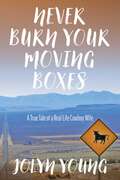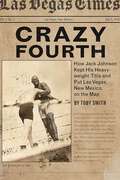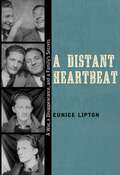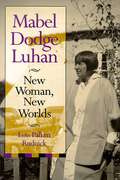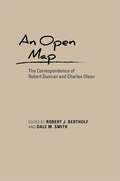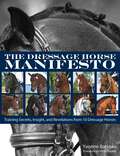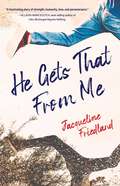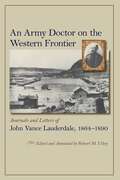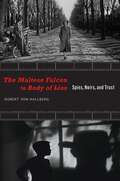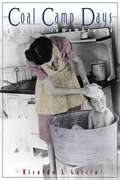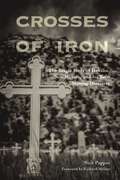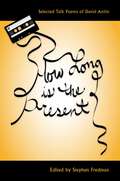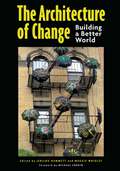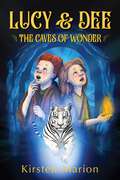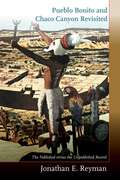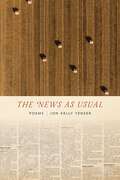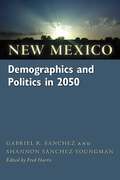- Table View
- List View
Never Burn Your Moving Boxes
by Jolyn YoungA young woman's struggle with marriage and motherhood on some of the most remote ranches in the American West.Jolyn Young grew up in the &“real&” northern California—the forgotten area at the tip-top of the state with small towns, extreme poverty, and about 40 miles to the Oregonian mountains. In a childhood defined by a subdivision, she decided she wanted to be a cowboy, and two years out of college, she saw that dream through, taking a job at a Nevada ranch in the search for a lifestyle subsisting of horses, cattle, and the wide open range.Falling in love was never part of the plan.Jim Young was tall, strong, and could ride a bronc and rope a steer like no one's business. And before she knew it Jolyn found her cowboyin' dreams overtaken by a new and intoxicating cowboy reality. With long days side by side in the saddle, nights sharing a bedroll, and the deep satisfaction that came with hard physical work in a place filled with natural beauty, it seemed life was all a strong-willed young woman might want it to be.But when a baby-to-be suddenly spun her wild romance into a very practical marriage, and one decrepit ranch trailer home led to the next, Jolyn found her young family desperately seeking stability in what is by definition a transient lifestyle that moves with the seasons. Often hours from the nearest grocery store and half-a-day from the closest hospital, pregnancy, childbirth, and illness required a do-it-yourself mentality. With days, sometimes weeks on her own as Jim worked the farthest reaches of whatever ranchlands they currently called home—and first with one child to care for—and eventually with three—Jolyn fought profound loneliness, finding comfort in writing and company in her camera.As the cowboy lifestyle pulled them further toward the brink of civilization and Jim's drinking became a liability, losing him jobs and sending them packing, again, to yet another, different, distant cow camp, Jolyn struggled with the knowledge that she was choosing a life of scrubbing filthy mobile home floors and bunkhouse bathrooms in order to keep her family together. It would take leaving it, and Jim, for her to determine whether a world built on risk could coexist with the responsible mother she had needed to become.With a memoir that is brave, honest, and heartbreakingly funny, Jolyn Young has written the story of every young adventure-seeker, every new mother, and every partner who has loved an alcoholic in a whole new light—that of a campfire, on the edge of the desert night, miles away from cell phone reception.
Crazy Fourth: How Jack Johnson Kept His Heavyweight Title and Put Las Vegas, New Mexico, on the Map
by Toby SmithIn 1912 boxing was as popular a spectator sport in the United States as baseball, if not more so. It was also rife with corruption and surrounded by gambling, drinking, and prostitution, so much so that many cities and states passed laws to control it. But not in New Mexico. It was the perfect venue for one of the biggest, loudest, most rambunctious heavyweight championship bouts ever seen. In Crazy Fourth Toby Smith tells the story of how the African American boxer Jack Johnson—the bombastic and larger-than-life reigning world heavyweight champion—met Jim Flynn on the fourth of July in Las Vegas, New Mexico. The civic boosters, bursting with pride in their town, raised a hundred thousand dollars for the fight, pushing events like the sinking of the Titanic to the back pages of every newspaper. In the end, once the dust finally settled on the whole unseemly spectacle, Las Vegas would spend the next generation making good on its losses.
Art and Architecture of Viceregal Latin America, 1521-1821 (Diálogos Series)
by Kelly Donahue-WallaceKelly Donahue-Wallace surveys the art and architecture created in the Spanish Viceroyalties of New Spain, Peru, New Granada, and La Plata from the time of the conquest to the independence era. Emphasizing the viceregal capitals and their social, economic, religious, and political contexts, the author offers a chronological review of the major objects and monuments of the colonial era. In order to present fundamental differences between the early and later colonial periods, works are offered chronologically and separated by medium - painting, urban planning, religious architecture, and secular art - so the aspects of production, purpose, and response associated with each work are given full attention. Primary documents, including wills, diaries, and guild records are placed throughout the text to provide a deeper appreciation of the contexts in which the objects were made.
A Distant Heartbeat: A War, a Disappearance, and a Family's Secrets
by Eunice LiptonOn May 20, 1938, a young man from the Bronx informs his parents that he is leaving for the Catskills to begin his new job as a waiter. Instead, he sails for Europe to join the Abraham Lincoln Brigade in the Spanish Civil War, the opening round in the fight against Hitler and Mussolini. The man, Dave Lipton—the author&’s uncle—sends letter after letter home detailing his hopes and begging for forgiveness. He never receives a reply.Decades later, Eunice Lipton stumbles upon clues for this silence, uncovering details of Dave&’s exhilarating political life in New York, his shuttered romantic life, and his deep friendship with another volunteer. A Distant Heartbeat tells a tale of passion and heroism, centered on a fierce competition between brothers, a packet of missing letters, and the unforeseen results of family betrayal.
Autobiography in Black and Brown: Ethnic Identity in Richard Wright and Richard Rodriguez
by Michael Nieto GarciaRichard Wright was the grandson of slaves, Richard Rodriguez the son of immigrants. One black, the other brown, each author prominently displays his race in the title of his autobiography: Black Boy and Brown. Wright was a radical left winger, while Rodriguez is widely viewed as a reactionary. Despite their differences, Michael Nieto Garcia points out, the two share a preoccupation with issues of agency, class struggle, ethnic identity, the search for community, and the quest for social justice. Garcia&’s study, the first to compare these two widely read writers, argues that ethnic autobiography reflects the complexity of ethnic identity, revealing a narrative self that is bound to a visible ethnicity yet is also protean and free.These autobiographies, according to Garcia, exemplify the tensions and contradictions inherent in identity. In their presentation of the self we see the rejection not only of essentialized notions of ethnic authenticity but also of any conception of an ethnic self that is not also communally derived. The image reflected in the mirror of autobiography also reminds us that consciousness itself is altered by our reading, and that the construction of modern ethnicity is shaped to a considerable extent by print culture.
Mabel Dodge Luhan: New Woman, New Worlds
by Lois Palken RudnickShe was the most peculiar common denominator that society, literature, art and radical revolutionaries ever found in New York and Europe. So claimed a Chicago newspaper reporter in the 1920s of Mabel Dodge Luhan, who attracted leading literary and intellectual figures to her circle for over four decades. Not only was she mistress of a grand salon, an American Madame de Stael, she was also a leading symbol of the New Woman: sexually emancipated, self-determining, and in control of her destiny. In many ways, her life is the story of America's emergence from the Victorian age.Lois Rudnick has written a unique and definitive biography that examines all aspects of Mabel Dodge Luhan's real and imagined lives, drawing on fictional portraits of Mabel, including those by D. H. Lawrence, Carl Van Vechten, and Gertrude Stein, as well as on Mabel's own voluminous memoirs, letters, and fiction. Rudnick not only assesses Mabel as muse to men of genius but also considers her seriously as a writer, activist, and spirit of the age.This biography will appeal not just to cultural historians but to any woman who has loved and lived with men who are artists and rebels. Both as a liberated woman and as a legend, Mabel Dodge Luhan embodies the cultural forces that shaped modern America.
An Open Map: The Correspondence of Robert Duncan and Charles Olson (Recencies Series: Research and Recovery in Twentieth-Century American Poetics)
by Robert J. Bertholf and Dale M. SmithThe correspondence of Robert Duncan and Charles Olson is one of the foundational literary exchanges of twentieth-century American poetry. The 130 letters collected in this volume begin in 1947 just after the two poets first meet in Berkeley, California, and continue to Olson&’s death in January 1970. Both men initiated a novel stance toward poetry, and they matched each other with huge accomplishments, an enquiring, declarative intelligence, wide-ranging interests in history and occult literature, and the urgent demand to be a poet. More than a literary correspondence, An Open Map gives insight into an essential period of poetic advancement in cultural history.
Dressage Horse Manifesto
by Yvonne BarteauThose who work with and train horses on a regular basis are likely constantly searching for new ways to make inroads and find answers when faced with tough training or behavior problems. Grand Prix dressage rider and performer Yvonne Barteau has trained her share of horses over the years—from off-track racing Thoroughbreds, to Arabians, to Friesians, to Warmbloods—and she asserts that everything that needs to be known about effectively training a horse is already known…by any horse. Each horse,&” says Barteau, &“will know and respect the person who figures out how to train him, if that person is fair. The best trainers are not only &‘horse whisperers,&’ they are listeners. And readers. They listen to what the horse has to say. They can read horse body language and behavior patterns. They are calm and they stay calm under pressure. How did they learn that? By studying horses. Over time the horses told them how to be a horse trainer and they listened.&” Barteau believes that every dressage rider can learn to listen and read, and so experience greater success and partnership with his or her horse. In this book Barteau has used her knowledge and decades of experience and success in and out of the dressage ring to help put to paper what 10 different dressage horses would say to you about horse training if they could. Through the dressage horse&’s mouth, from his point of view, readers learn: how simple things really are and how complicated we make them; the value of routine, consequence, and peace; the importance of leadership, fairness, and trust; the need for your sense of responsibility to match your ambition; plus, what kinds of rewards really work and what frightens, annoys, or causes horses to disregard us altogether. If you listen properly, horses will tell you how to train them. This book is a published declaration of their needs as our athletic partners, fellow competitors, and friends.
He Gets That from Me: A Novel
by Jacqueline Friedland&“It is hard to imagine a better novel for a book club discussion...A thoughtful and gripping family tale that will haunt readers long after finishing it.&” —Kirkus Reviews, STARRED As a young mother with a toddler and a live-in boyfriend, Maggie Fisher&’s job at a checkout counter in downtown Phoenix doesn&’t afford her much financial flexibility. She dreams of going to college and becoming a teacher, options she squandered when she fled her family home as a teenager. When Maggie stumbles onto an ad offering thousands of dollars to women who are willing to gestate other people&’s babies, she at first finds the concept laughable. Before long, however, she&’s been seduced by all the ways the extra money could improve her life. Once she decides to go for it, it&’s only a matter of months before she&’s chosen as a gestational carrier by Chip and Donovan Rigsdale, a married couple from New York. After delivering twin babies and proudly handing them off to the Rigsdales, Maggie finally gets her life on a positive trajectory: she earns her degree, lands a great job, and builds a family of her own. She can&’t fathom why, ten years after the fact, the fertility clinic is calling to ask for a follow-up DNA test.High-energy and immensely readable, He Gets That from Me explores what it really means to be part of a family.
Riders of a Certain Age
by Fran SevernA delightfully honest look at the realities of starting out with horses—when you're getting older.Are you a woman at midlife or beyond? Have you just discovered you have a passion for horses? Or maybe you've now found time for them after years devoted to a job and family? Surveys show that riders over the age of 40 are the fastest growing segment of the equestrian world, with those age 65 and above seeing the biggest jump—so you are far from alone!With carefully curated guidance collected over years of horsing around, rider and writer Fran Severn wants to embolden and empower you with tips, lessons, and advice as you begin enjoying a life with horses in it. In these pages, you'll find options for:Riding—and not riding (but still having horses in your life).Finding an instructor and being a good student.Coming to grips with what your body can and can't do in terms of fitness, weight, and fear.Understanding the realities of arthritis, menopause, and changing vision, hearing, and breathing.Knowing the rules for buying, leasing, and boarding horses.Dealing with family and horse-related finances.And much more.Riders of a Certain Ageprovides an important reference to any older individual who craves the companionship of a horse and the sisterhood that can go along with it.
An Army Doctor on the Western Frontier: Journals and Letters of John Vance Lauderdale, 1864-1890
by Robert M. UtleyAssigned to the District of Utah during the Civil War, physician John Vance Lauderdale spent the next twenty-five years on army posts in the American West, serving in California, Arizona, New Mexico, South Dakota, and Texas. Throughout his career he kept a detailed journal and sent long letters home to his sister in upstate New York. This selection of Lauderdale&’s writings, edited and annotated by a premier historian of the American West, offers an insightful account of army life that will teach readers much about the settlement and growth of the West in a time of rapid change.Lauderdale&’s observations are keen and critical. He writes about fellow officers, his army superiors, the civilians and American Indians he encountered, life on officers&’ row, and the day-to-day functioning of the army medical service. Particularly valuable are his insights into military interactions with local communities of Mormons, American Indians, and Hispanos.
Viceroy Güemes's Mexico: Rituals, Religion, and Revenue (Diálogos Series)
by Christoph RosenmüllerViceroy Güemes’s Mexico: Rituals, Religion, and Revenue examines the career of Juan Francisco Güemes y Horcasitas, viceroy of New Spain from 1746 to 1755. It provides the best account yet of how the colonial reform process most commonly known as the Bourbon Reforms did not commence with the arrival of José de Gálvez, the visitador general to New Spain appointed in 1765. Rather, Güemes, ennobled as the conde de Revillagigedo in 1749, pushed through substantial reforms in the late 1740s and early 1750s, most notably the secularization of the doctrinas (turning parishes administering to Natives over to diocesan priests) and the state takeover of the administration of the alcabala tax in Mexico City. Both measures served to strengthen royal authority and increase fiscal revenues, the twin goals historians have long identified as central to the Bourbon reform project. Güemes also managed to implement these reforms without stirring up the storm of protest that attended the Gálvez visita. The book thus recasts how historians view eighteenth-century colonial reform in New Spain and the Spanish empire generally.Christoph Rosenmüller’s study of Güemes is the first in English-language scholarship that draws on significant research in a family archive. Using these rarely consulted sources allows for a deeper understanding of daily life and politics. Whereas most scholars have relied on the official communications in the great archives to emphasize tightly choreographed rituals, for instance, Rosenmüller’s work shows that much interaction in the viceregal palace was rather informal—a fact that scholars have overlooked. The sources throw light on meeting and greeting people, ongoing squabbles over hierarchy and ceremony, walks on the Alameda square, the role of the vicereine and their children, and working hours in the offices. Such insights are drawn from a rare family archive harboring a trove of personal communications. The resulting book paints a vivid portrait of a society undergoing change earlier than many historians have believed.
The Maltese Falcon to Body of Lies: Spies, Noirs, and Trust (Recencies Series: Research and Recovery in Twentieth-Century American Poetics)
by Robert von HallbergFilm noir is by definition dark, but not, this book argues, desperate. Examining twenty-eight great noir films from the earliest examples of the genre, including The Maltese Falcon, The Big Sleep, and Out of the Past, to such twenty-first-century spy films as The Good Shepherd, Syriana, and The Bourne Ultimatum, this study explores the representations of trust and commitment that noir and spy films propose. Through thorough examination, von Hallberg provides insights into the cultural history of film and our cinematic experience with the concept of trust.
Coal Camp Days: A Boy's Remembrance
by Ricardo L. GarciaThe coalfields of northern New Mexico are the setting for the remembrances of six-year-old Matias Montaño, a fictionalized version of the author's life in the last years of World War II. García writes about ordinary coal-mining people as they struggle to make a living and raise families, and about their heroism, joy for living, and their belief in the value of education, hard work, and the American Dream.For Matias, his brothers, friends, and the adults in their lives, the poor living conditions did not interfere with their adventures and activities, which included collecting scrap iron, picking chokecherries, tracking deer, hunting rattlesnakes, and riding hand cars down the railroad tracks. This book presents a fresh and richly textured view of life in a mining town from the Hispanic viewpoint but includes folklore and stories told by the town's many other ethnic groups, among them Italian, Slavic, and Greek immigrants and African Americans, all working together in support of the war effort and in search of better lives.
rode
by Thomas Fox AverillWhen Thomas Fox Averill first heard Jimmy Driftwood's ballad Tennessee Stud, he found the song hauntingly compelling. As he began to imagine the story behind the lyrics, he set out to research the song's history--a tale from along about eighteen and twenty-five of the legendary exploits of the greatest horse that ever lived, the Tennessee Stud, and his owner.Traveling the same route the song chronicles, from Tennessee into Arkansas, through Texas and into Mexico, Averill visited racetracks, Spanish missions, historical museums, a living history farm, and national parks, inventing characters of his own along the way. His novel captures the spirit of the ballad while telling the story of Robert Johnson, a man who holds love in his heart though adventure rules his time. Pursued by a bounty hunter, Indians, and his conscience, Johnson and his horse are tested, strengthened, and made resolute. &“Both an odyssey and a great love story, rode is made compelling by its thoughtful hero and the surprising woman he longs for. Precise language and authentic detail render a vivid sense of another time, and Averill&’s Southern landscape, so beautifully drawn, is peopled with unforgettable men and women.&” —Laura Moriarty, author of The Center of Everything. &“No one drives a narrative better than Thomas Fox Averill, and this novel version of a grand American tale shows Tom Averill&’s skills at their best. rode performs not only through action but the perfect articulation of 19th Century Arkansas and Tennessee. Averill knows the lingo, blunt, uncompromising, and accurate, from saddle trees to foals, and even to a dauncy mare, a wonderful allusion to the author&’s Scottish heritage and ours. This is complicated evocation of character, yes, in Robert Johnson, Jo Benson, and others; but even more, Thomas Averill&’s narrative rides evocative language like a great stud horse.&”—Robert Stewart, author of Outside Language: Essays, editor, New Letters magazine
Roadside New Mexico: A Guide to Historic Markers, Revised and Expanded Edition
by David PikeThrough New Mexico&’s Official Scenic Historic Markers we learn about the people, the geological features, and the historical events that have made the Land of Enchantment a place unlike any other. An index to our history, these markers tell an incredible story about our cultures and origins. This revised and expanded edition of Roadside New Mexico provides additional information about these sites and includes approximately one hundred new markers, sixty-five of which document the contribution of women to the history of New Mexico.Now structured alphabetically for easier identification, each essay also offers suggestions of similar Historic Markers to help readers explore each topic further. In addition, Pike includes entries on &“Ghost Markers&”—those sites missing from the road that still impart significant historical lessons. Roadside New Mexico delivers a useful companion for travelers who want to understand more about the landscapes and inhabitants of the state.
Manifestos and Polemics in Latin American Modern Art
by Patrick FrankBringing together sixty-five primary documents vital to understanding the history of art in Latin America since 1900, Patrick Frank shows how modern art developed in Latin America in this important new work complementing his previous book, Twentieth-Century Art of Latin America, Revised and Expanded Edition. Besides autobiographies, manifestos, interviews, and artists&’ statements, the editor has assembled material from videos, blogs, handwritten notes, flyers, lectures, and even an after-dinner speech. As the title suggests, many of the texts have a polemical or argumentative cast. In these documents, many of which appear in English for the first time, the artists themselves describe what they hope to accomplish and what they see as obstacles. Designed to show how modern art developed in Latin America, the documents begin with early modern expressions in the early twentieth century, then proceed through the avant-garde of the 1920s, the architectural boom of midcentury, and the Cold War years, and finally conclude with the postmodern artists in the new century.
Crosses of Iron: The Tragic Story of Dawson, New Mexico, and Its Twin Mining Disasters
by Nick PappasWinner of the Historical Society of New Mexico Gaspar Pérez de Villagrá Award—for outstanding publication in New Mexico or Southwest borderlands history In October 1913, 261 miners and two rescuers died when a massive explosion ripped through a mine operated by Phelps, Dodge & Company in Dawson, New Mexico. Ten years later, a second blast claimed the lives of another 120 miners. Today, Dawson is a deserted ghost town. All that remains is a sea of white iron crosses memorializing the nearly four hundred miners killed in the two explosions—a death toll unmatched by mine disasters in any other town in America. Now, to mark the centennial of the second disaster, veteran journalist Nick Pappas tells the tragic story of what was once New Mexico&’s largest and most modern company town and of how the strong, determined residents of the community coped with two heartbreaking catastrophes.
How Long Is the Present: Selected Talk Poems of David Antin (Recencies Series: Research and Recovery in Twentieth-Century American Poetics)
by David AntinPoet, performance artist, and critic David Antin invented the &“talk poem.&” He insists that his poems be oral and created in front of a live audience, in a specific time and place, with the transcription of the performance adjusted for print by presenting it not in prose but in clumps of words without justified margins or punctuation, peppered with white spaces that indicate pauses.In this book, editor Stephen Fredman provides a critical introduction to a selection of talk poems from three out-of-print collections, accompanied by a new interview with the author. As Fredman points out, Antin&’s work is a form of conceptual writing that has influenced generations of experimental poets and prose writers. His profound and humorous talk poems are essential for classroom and scholarly discussions of the arts in modernism and postmodernism—offering as well an invitation to strengthen the ties between the sciences and the humanities.
The Architecture of Change: Building a Better World
by Jerilou Hammett Maggie WrigleyThe Architecture of Change: Building a Better World is a collection of articles that demonstrates the power of the human spirit to transform the environments in which we live. This inspiring book profiles people who refused to accept that things couldn&’t change, who saw the possibility of making something better, and didn&’t esitate to act.Breaking down the stereotypes surrounding &“socially engaged architecture,&” this book shows who can actually impact the lives of communities. Like Bernard Rudofsky&’s seminal Architecture Without Architects, it explores communal architecture produced not by specialists but by people, drawing on their common lives and experiences, who have a unique insight into their particular needs and environments. These unsung heroes are teachers and artists, immigrants and activists, grandmothers in the projects, students and planners, architects and residents of some of our poorest places. Running through their stories is a constant theme of social justice as an underlying principle of the built environment. This book is about opening one&’s eyes to new ways of interpreting the world, and how to go about changing it.
Crown Prince
by Linda Snow McLoonSarah Wagner has always dreamed of having a horse of her own. When she manages to keep a runaway school horse from hurting himself and others, Sarah captures the attention of the owners of Brookmeade Farm. Suddenly, she finds her dream finally coming true with the gift of the racetrack rogue, Crown Prince, but keeping the beautiful and talented troublemaker proves to be a challenge. Sarah must convince her parents her new horse is safe to ride, and at the same time find a way to keep Crown Prince's former owner from taking him back. This is the story of one girl's determination to keep the horse she loves when the odds are stacked against her.Written for ages 12 and up.
The Caves of Wonder: Lucy & Dee (Book 2) (Lucy & Dee)
by Kirsten MarionTrapped in Sericea, Lucy and Dee continue their adventure with the young emperor Yidi. Together they must travel to the Caves of Wonder to find the White Tiger, a fabled warrior… and their best bet for confronting the evil queen.A deftly crafted and thoroughly fun read ... especially and unreservedly recommended for elementary school, middle school, and community library Fantasy Fiction collections. MBR Midwest Book review
Pueblo Bonito and Chaco Canyon Revisited: The Published versus the Unpublished Record
by Jonathan E. ReymanChaco Canyon and Mesa Verde are arguably the two best-known archaeological areas in the American Southwest. Yet despite more than a century of archaeological research, many questions remain unanswered.From more than fifty years of research, archaeologist Jonathan E. Reyman has uncovered a wealth of materials from the work of George Pepper and Richard Wetherill, mostly from the 1896–1901 Hyde Exploring Expedition at Chaco Canyon but also from later field and collections research at more than twenty institutions in the United States. Previously unpublished Pepper-Wetherill field notes, photographs, and drawings combined with newly commissioned drawings offer a significant revision to what we know about the Chacoan world.Reyman’s research has produced a unique book that compares the published record with the unpublished record to provide new information and insight into the archaeological culture and history of Chaco, the findings of the HEE and other pre-1950 archaeological projects, various Chaco field schools, and much more.Pueblo Bonito and Chaco Canyon Revisited offers a blueprint for future research among existing archaeological collections.
The News as Usual: Poems (Mary Burritt Christiansen Poetry Series)
by Jon Kelly YenserThe News as Usual showcases the work of a gifted poet who employs language at its richest. Yenser captures lyrics and blues, ballads and villanelles, and even a crown of sonnets. Sonically rich and filled with detail, these poems link mortality with fishing, nature with protoplasm—constantly finding ways to explore the inner and outer worlds in ways at once understated and wise.
New Mexico Demographics and Politics in 2050
by Gabriel R. Sánchez Shannon Sánchez-Youngman&“Combining New Mexico&’s Hispanic population with its Native American community makes New Mexico one of the few minority-majority states in the country,&” write Gabriel R. Sánchez and Shannon Sánchez-Youngman in this E-short edition from New Mexico 2050. Here, Sánchez, a nationally recognized political scientist, and Sánchez-Youngman, a political science doctoral student, explore New Mexico&’s unique demography and its impact on politics in the state. This selection is enhanced by an accompanying essay by attorney and activist Pamelya Herndon on African Americans and other minorities in New Mexico.
